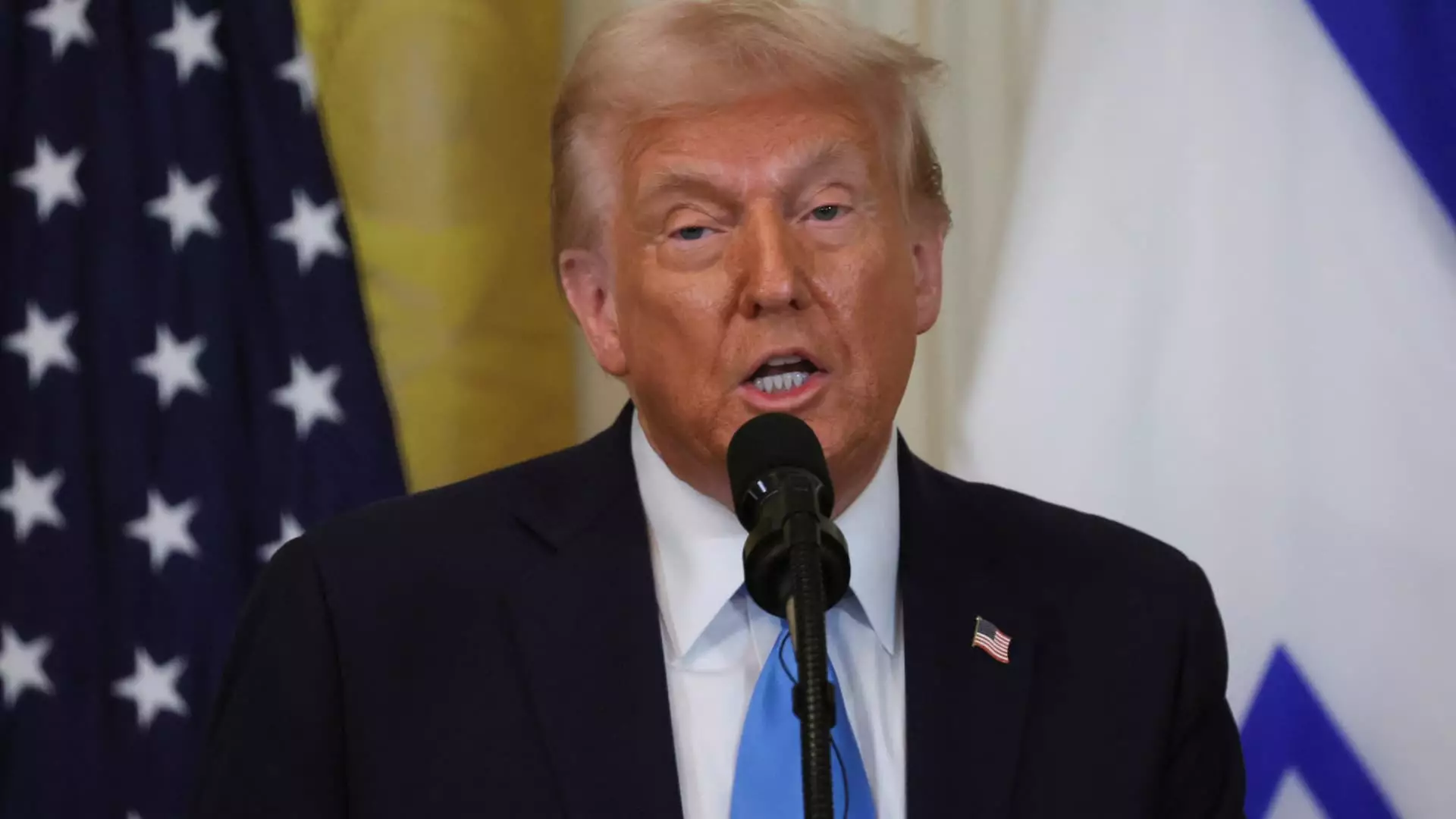In an extraordinary announcement, President Donald Trump declared that the United States “will take over the Gaza Strip,” a statement that has raised eyebrows both domestically and internationally. Speaking at a press conference alongside Israeli Prime Minister Benjamin Netanyahu, Trump asserted that all Palestinians residing in Gaza—approximately two million individuals—should evacuate and resettle in nearby Middle Eastern nations such as Jordan and Egypt. This controversial proposal comes in the wake of a devastating conflict with Israel, ignited by a surprise attack from Hamas on October 7, 2023.
Trump characterized Gaza as a “hellhole,” reflecting the dire conditions resulting from prolonged warfare and destruction. It’s a loaded term that simplifies the complex humanitarian and political situation in the territory. His vision for Gaza’s future, however, contrasts sharply with the grim realities, as he suggested that it could become “the Riviera of the Middle East.” He described an ambitious plan for economic development that purportedly would create jobs and housing. Yet, the feasibility of such a transformation in a region rife with historical animosities and ongoing violence requires careful scrutiny.
Trump’s idea of U.S. governance over Gaza is not altogether new; it echoes his previous whimsical remarks about American territorial expansion, including proposals to purchase Greenland and make Canada a state. Nonetheless, the suggestion that the U.S. should take operational control of Gaza, an occupied territory, warrants rigorous debate. The notion of “owning” a region raises deeper questions about sovereignty, the rights of the Palestinian people, and the long-term implications of such an action.
During the press conference, Netanyahu supported Trump’s views, remarking that U.S. involvement could “change history.” This points to a broader dialogue about international intervention in conflict zones and whether external powers should assume control over territories embroiled in fundamental disputes. While proponents argue that such actions could foster stability, critics rightly warn against the imposition of foreign governance, which often overlooks local aspirations and grievances.
The Humanitarian Crisis in Gaza
The humanitarian situation in Gaza deserves urgent attention. Trump acknowledged the suffering of the Palestinian people but suggested that returning them to their homes would not be a viable solution. “They’re living like hell,” he stated, a commentary that simplifies the profound and multifaceted challenges faced by the residents. For many, the prospects of rebuilding their lives post-war are overshadowed by fears of ongoing violence and instability.
Moreover, Trump’s proposal for neighboring countries to accommodate hundreds of thousands of refugees raises significant logistical and ethical concerns. While it’s crucial to alleviate the humanitarian crisis, the idea of displacement as a solution tends to displace Palestinian agency and self-determination. Furthermore, historical attempts to resettle populations have often led to long-term geopolitical instability, raising the specter of resentment and renewed conflict.
The ongoing negotiations involving American, Israeli, and Arab officials surrounding a ceasefire plan introduce yet another layer of complexity into Trump’s proposition. While some progress appears to have been made following the cessation of hostilities, the exact political and logistical paths forward remain contentious. The history of Israeli-Palestinian relations is fraught with failed negotiations and broken promises, making any proposed solutions ripe for skepticism.
The assertion that the region could be revival through U.S. oversight requires a critical examination of past U.S. interventions and their outcomes. History shows that external interventions often come with unintended consequences, including resistance from local populations and the entrenchment of existing divisions. The question remains: can U.S. involvement in Gaza genuinely effectuate lasting peace, or will it further complicate an already intricate situation?
As the future of Gaza hangs in the balance, President Trump’s controversial proposal to take control of the territory serves as a litmus test for American foreign policy in conflict resolution. It underscores the necessity for a nuanced and empathetic approach that prioritizes the voices and needs of the local population over ambitious geopolitical agendas. Moving forward, the global community must engage thoughtfully with the complexities of Gaza’s future, striving for solutions that promote peace and self-determination rather than imposing external controls that may lead to further discord.


Leave a Reply